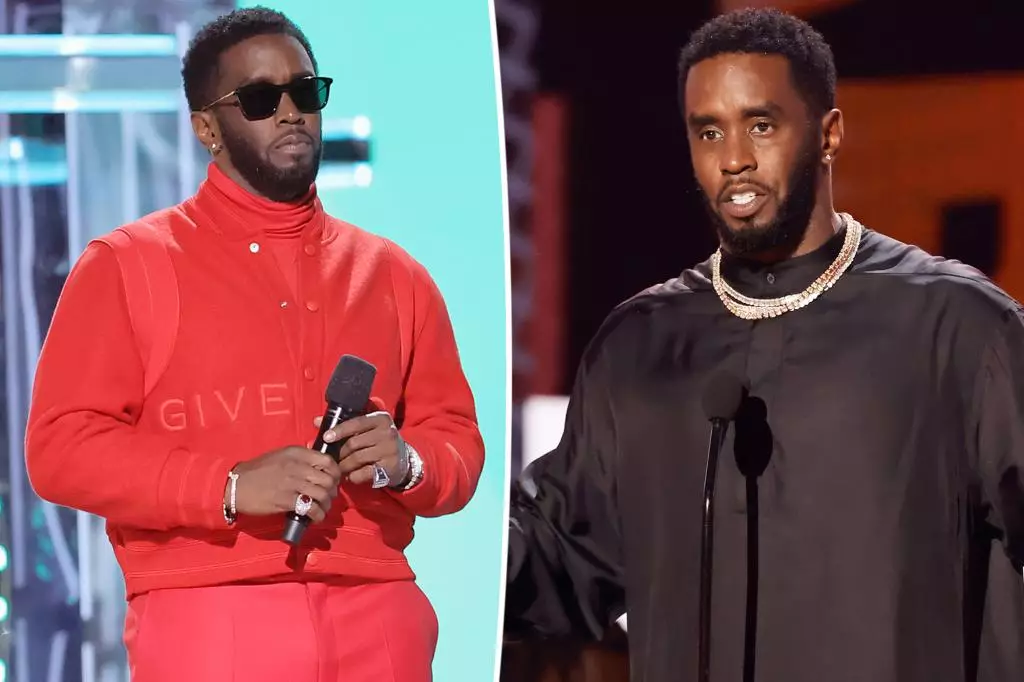Sean “Diddy” Combs, a prominent figure in the music industry, finds himself in the crosshairs of a serious legal confrontation involving sex trafficking and racketeering. As he prepares for a trial many are closely watching, the decision to take the stand as a defendant brings with it an array of complexities and potential repercussions. Attorney Meesha Moulton, with her extensive expertise, raises critical points regarding this strategic legal maneuver, urging caution for Combs as he navigates this precarious situation.
Moulton’s analysis underscores a fundamental principle in legal defense: defendants are typically advised against testifying in their own trials. Her observation rests on several key factors that come into play during court proceedings. The act of taking the stand invites relentless scrutiny from prosecution through cross-examination, which often seeks to expose inconsistencies or contradictions in the defendant’s statements. Such probing can be mentally taxing, and Diddy may find himself uncomfortably positioned if he faces persistent and intrusive questioning.
Combs’ emotional state during testimony could dramatically influence the outcome of the trial, as jurors often pick up on subtle cues of nervousness or agitation. Moulton asserts that if Combs struggles to maintain composure under the intensity of cross-examination, it could sway the jury’s perception negatively, cementing doubts about his credibility.
The conflict between a strategic legal defense and a defendant’s desire for personal vindication is markedly pronounced in Combs’ case. While his attorney, Marc Agnifilo, relishes the opportunity to share Combs’ narrative—a tale rife with elements of love and emotional turmoil—Moulton cautions that prioritizing self-expression could be detrimental. She suggests that, instead, Combs should focus on executing a robust defense strategy, ensuring that any leap toward personal storytelling does not inadvertently weaken his legal standing.
The bet that Agnifilo places on shifting the focus to Combs’ own narrative is noteworthy, as narratives often shape jurors’ perceptions far more than dry facts. By sharing his side of the story, Combs could potentially initiate a dialogue that humanizes him. Yet, this method is fraught with risk, as the emotional appeal must be couched within a solid defense framework to avoid backfiring under courtroom scrutiny.
Challenges and Potential Benefits of Testifying
While the potential for public sentiment to be swayed by emotional testimonies exists, the looming dangers of self-incrimination are a significant concern. Moulton identifies cross-examination as the most formidable obstacle Combs would encounter on the stand. She starkly articulates the opinion that the risks far outweigh the potential benefits. Yet, she also acknowledges the rare opportunity such a testimony presents: shifting the courtroom’s focus from prosecutorial claims to Combs’ constructed narrative.
In attempting to present himself as a multifaceted individual engaged in philanthropic endeavors, Combs could create a more complex picture for jurors to digest. This approach may provoke uncertainty about the prosecution’s assertions, giving jurors pause before arriving at a verdict. However, such strategies require meticulous preparation; Moulton emphasizes the importance of Combs being able to handle unexpected challenges posed by real-time courtroom developments and evidence assessments during his testimony.
The allegations detailed in the recent indictment could not be more serious. With claims of sex trafficking, forced labor, and a myriad of other charges, the stakes in this case are monumental. The indictment paints a picture of a criminal enterprise allegedly orchestrated by Combs that engaged in heinous acts, from coercion to physical harm against victims. The narrative of alleged “Freak Off” parties further intensifies the scrutiny, as details emerge about the environment cultivated for these gatherings.
With thousands of bottles of baby oil and lubricant seized during federal raids on his properties, alongside accusations of systemic abuse and cover-up efforts, the gravity of the situation cannot be overstated. The repercussions for Combs, should he face conviction, could mean a lengthened prison sentence—a reality that adds immense pressure to his legal strategies.
As Combs embarks on this tumultuous legal journey, with a status hearing looming, the choices made in the courtroom will resonate far beyond the trial itself. The blending of personal narrative with legal strategy stands as a double-edged sword, wielding both promise and peril. Diddy faces a defining moment, where the intersection of public perception and judicial proceedings will critically determine his legacy and future freedom. In such a precarious scenario, the stakes could not be higher for this music mogul navigating his biggest challenge yet.

Leave a Reply